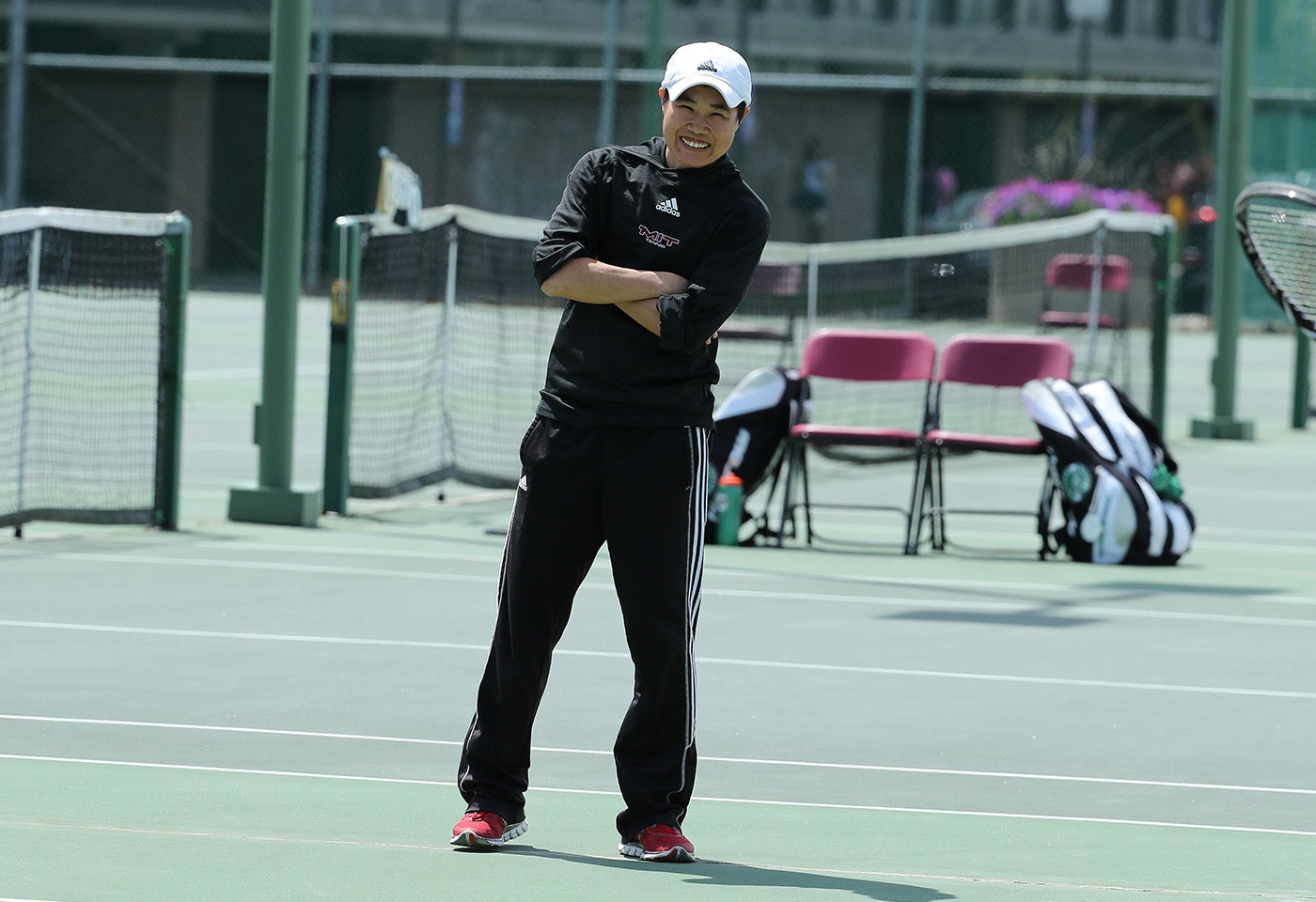
“What will drive you every day? What will shape you as a person? What makes you want to be relentless, strong, and strive for excellence?”
Carol Matsuzaki ‘95 found herself asking these questions. She was encouraged to pursue an education at MIT by her high school calculus teacher Jaime Escalante, whose story is known by many from the movie Stand and Deliver. “My academic passions and career ambitions were unclear when I came to MIT,” recalled Matsuzaki. “Many of my high school peers were not fortunate enough to have this kind of opportunity, so at that point, I just felt that coming here would put me in a position to live a more comfortable life.”
While waiting in line for food during Orientation, Matsuzaki felt a poignant moment that made her question her ability to fit in. “There were two people in front of me in line talking to each other, and one of them tells the other that his parents are a lawyer and a doctor,” she described. “Up to that point, my experience had been if a kid had 2 parents they would likely be a homemaker and a factory worker – not a doctor and a lawyer. At that point, I did have some insecurity wondering if I would be able to find my place at MIT or if I would be able to find anything in common with anyone else here.”
But, Matsuzaki learned and battled p-sets alongside her peers, completing her degree in Course 7 and 21L while also competing on the varsity squash and tennis teams. It was her experience with sport that quelled her apprehensions about finding common ground with her classmates. “I can always find something in common with a fellow athlete,” she said. “Knowing this and being able to connect with someone or helping someone else connect with another person is awesome and powerful.”
As she progressed through her undergraduate education, Matsuzaki kept reflecting on those same initial questions. Her passions and career ambitions became more and more clear. It wasn’t in biology, but coaching.
Upon graduation Matsuzaki completed a Master’s in Sport Psychology in just one year. She then returned to MIT as the Head Coach of the tennis team she had played on years earlier. A post she still holds while also teaching physical education. In both domains Matsuzaki incorporates her personal experience at MIT with her teaching style. “I try hard to empathize with how hard it may feel at times to be an MIT student. I remember sometimes it felt impossible. I try to show compassion when a student comes to a PE class or practice tired or demoralized.”
Matsuzaki can relate to the struggle of students, but now on the other side of it knows it made her stronger. She sees this transformation in her senior athletes who stop stressing the details or what they have no power over, and instead focus on delivering their best effort. “They learn that sometimes they are going to lose and fail, but that does not make them losers or failures.”
Escalante is known for saying, “One of the greatest things in life is that no one has the authority to tell you what you want to be. You’re the one who’ll decide what you want to be.” It was a push from Escalante that directed Matsuzaki to MIT, and perhaps his philosophy resonated in her decision to become a coach.
“An important thing that I took away from my days as an undergrad at MIT is that you will have the privilege of having a lot of opportunities in front of you, and you should go with the opportunity that you are most passionate.”